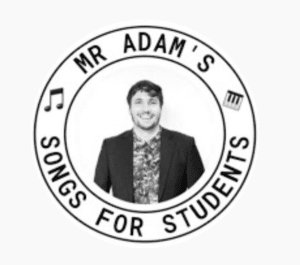Want to teach British English vs. American English? Here are some Americanisms to avoid if you want to teach British English in a school or to your private students
The BBC had a fun, short clip US English: Why do Brits hate it so? outlining some Americanisms that British people supposedly dislike. It is a lot of fun to watch to learn about some American phrases that schools wanting “British English” teachers will expect you to avoid.
“Can I get”
Some Americans ask, “Can I get ___?” when ordering food in a very informal setting. If you are American, it might seem natural to say, “Can I get a Coke?” at a Mcdonald’s, but British speakers understand this quite literally as you ask if you can get it yourself this time.
“Can I get” is a phrase specific to American English so consider teaching the more common British phrase “May I have” instead.
Spelling of “honor” and “color” and “center”.
There are many spelling differences between American English vs. British English. Some of the more common spellings that are different in Britain: British people spell “honour” and “realise” rather than “honor” and “realize”.
The history of these spelling differences lies in the political relationship between Britain and its estranged child, America; using these spellings was one way the colonists rejected the British crown during the American Revolution.
Fall versus Autumn
You likely already know that “fall” refers to the fall of the leaf, but did you know that the season is called “spring” because it refers to the spring of the leaf as it shoots from the ground? Regardless, the Brits call the season Autumn, so stick to teaching students “Autumn” instead.
Verbing
Verbing, the practice of using a noun as a verb, is a common tendency in American English but rarer in British English. Americans like to create verbs in informal settings, often by adding an -ing to create infinitives. Consider the phrases, “My boyfriend was spoon-ing me” or “Our family is summering in New Hampshire.”
Sometimes, no -ing is needed to change the noun to a verb, such as in the most ubiquitous noun-turned-verb: google. This linguistically-inclined father grapples with this verbing when his son asks him, “Why don’t you google the word, dad?”.
Verbing is common in American English, but schools hoping to stick to teaching only British English might frown upon the practice, even though Shakespeare apparently used “friend” as a verb before Facebook ever existed, according to the BBC clip.
American vs. British English Words
Vocabulary: Common Examples
As an ESL teacher, you know there are some very common words that differ in British English and American English. The most common word that comes up in my classes is American “soccer” and British “football.” In addition, there are many other vocabulary words to avoid if you want to teach British English.
Here are some common vocabulary words to trade in if you are striving to teach British English.
- They’re not pants; they’re trousers
- It’s not an apartment; it’s a flat
- It’s not a vacation; it’s a holiday
- It’s not a truck; it’s a lorry
- it’s not a sweater; it’s a jumper
- They’re not sneakers; they’re trainers
- Those aren’t french fries; they’re chips!
Vocabulary: American English vs. British English Words List
Below is an exhaustive list of English and British English words that differ. Keep in mind that the list might not cover every single variation but includes many common examples:
| English | British English |
|---|---|
| Apartment | Flat |
| Airplane | Aeroplane |
| Automobile | Car |
| Baby carriage | Pram |
| Backpack | Rucksack |
| Band-aid | Plaster |
| Bangs | Fringe |
| Bathrobe | Dressing gown |
| Broil | Grill |
| Candy | Sweets |
| Cell phone | Mobile phone |
| Checkers | Draughts |
| Cookie | Biscuit |
| Cilantro | Coriander |
| Closet | Wardrobe |
| Crib | Cot |
| Diaper | Nappy |
| Elevator | Lift |
| Eraser | Rubber |
| Fanny pack | Bum bag |
| Faucet | Tap |
| French fries | Chips |
| Garbage can | Dustbin |
| Gasoline | Petrol |
| Hood (of a car) | Bonnet |
| Intersection | Crossroads |
| Jello | Jelly |
| Jewelry | Jewellery |
| Post | |
| Movie theater | Cinema |
| Pants | Trousers |
| Pavement | Footpath |
| Pickup truck | Utility vehicle (Ute) |
| Railroad | Railway |
| Round trip | Return |
| Sidewalk | Pavement |
| Soccer | Football |
| Station wagon | Estate car |
| Store | Shop |
| Subway | Underground |
| Sweater | Jumper |
| Trash can | Bin |
| Trash | Rubbish |
| Truck | Lorry |
| Underwear | Pants |
| Vacation | Holiday |
| Wallet | Purse |
| Zucchini | Courgette |

As an ESL or ELL teacher, you know it is essential to know the differences between American and British English. You also understand that language is ever-changing.
Don’t be afraid to ask your school to explain precisely what Americanisms they want you to avoid, or ask your students why they want to learn British English (are they primarily interested in the accent or the specific phrases) so you can tailor your lessons accordingly.
If this was helpful, here are some related posts I wrote.













